- Maritime equipment >
- Conventional engines and propulsion systems >
- Ship sacrificial anode
Ship sacrificial anodes
{{product.productLabel}} {{product.model}}
{{#if product.featureValues}}{{product.productPrice.formattedPrice}} {{#if product.productPrice.priceType === "PRICE_RANGE" }} - {{product.productPrice.formattedPriceMax}} {{/if}}
{{#each product.specData:i}}
{{name}}: {{value}}
{{#i!=(product.specData.length-1)}}
{{/end}}
{{/each}}
{{{product.idpText}}}
{{product.productLabel}} {{product.model}}
{{#if product.featureValues}}{{product.productPrice.formattedPrice}} {{#if product.productPrice.priceType === "PRICE_RANGE" }} - {{product.productPrice.formattedPriceMax}} {{/if}}
{{#each product.specData:i}}
{{name}}: {{value}}
{{#i!=(product.specData.length-1)}}
{{/end}}
{{/each}}
{{{product.idpText}}}

Material: Zinc Weight: 0,4 Kg Diameter: 25 Norm: MIL - A - 18001K
ZINC-IT

Material: Zinc Weight: 3 Kg Norm: MIL - A - 18001K
ZINC-IT

Material: Zinc Weight: 0,4 Kg Diameter: 30 Norm: MIL - A - 18001K
ZINC-IT
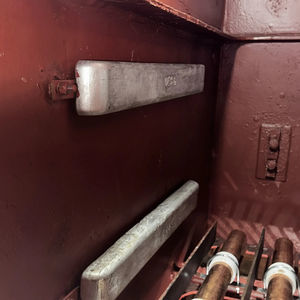
... infrastructure. How Sacrificial Anodes Work Sacrificial anodes are made from metals such as zinc, aluminum, or magnesium, which are more reactive than the metal of ...
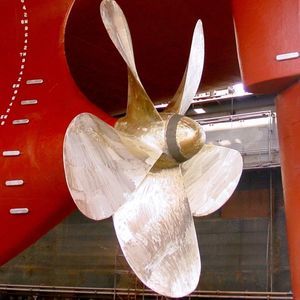
Marpo Ltd. is producing a wide range of zinc and aluminum sacrificial anodes and is stocking magnesium anodes for marine and onshore applications. Soft iron anodes can ...
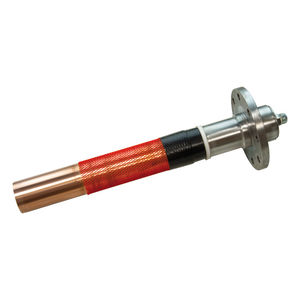
... copper ions. Standard sizes range from 60mm to 120mm in diameter and 100mm to over 1,000mm length. The photograph shows the anode fitted with a flange mounting arrangement.
Cathelco
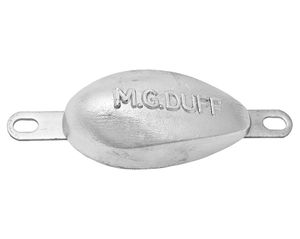
Zinc Hull Anode 2.1 Kgs Nom Net Weight 200 mm Bolt Centres
Your suggestions for improvement:

A ships sacrificial anode protects the hull from corrosion. NauticExpo offers aluminum, zinc, magnesium and other types of anodes.
ApplicationsSuch anodes fight ballast tank and hull corrosion. They are usually mounted on areas prone to corrosion, for example, between the propeller and the rudder.
TechnologiesWhen two metals are in contact under water, the less noble has a lower electrical potential than the more noble. This creates an electrical current from the more to the less noble metal, driving the latter's ions into the water, causing it to corrode. Since the sacrificial anode is less noble than the metal parts of the ship, it protects them by corroding in their place.
How to chooseChoice will depend on the anode's weight, size, shape and constituent material.
- Inexpensive
- No maintenance necessary
- Must be replaced every one to five years
the best suppliers
Subscribe to our newsletter
Receive regular updates on this section.
Please refer to our Privacy Policy for details on how NauticExpo processes your personal data.
- Brand list
- Manufacturer account
- Buyer account
- Our services
- Newsletter subscription
- About VirtualExpo Group







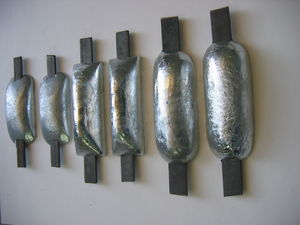

Please specify:
Help us improve:
remaining